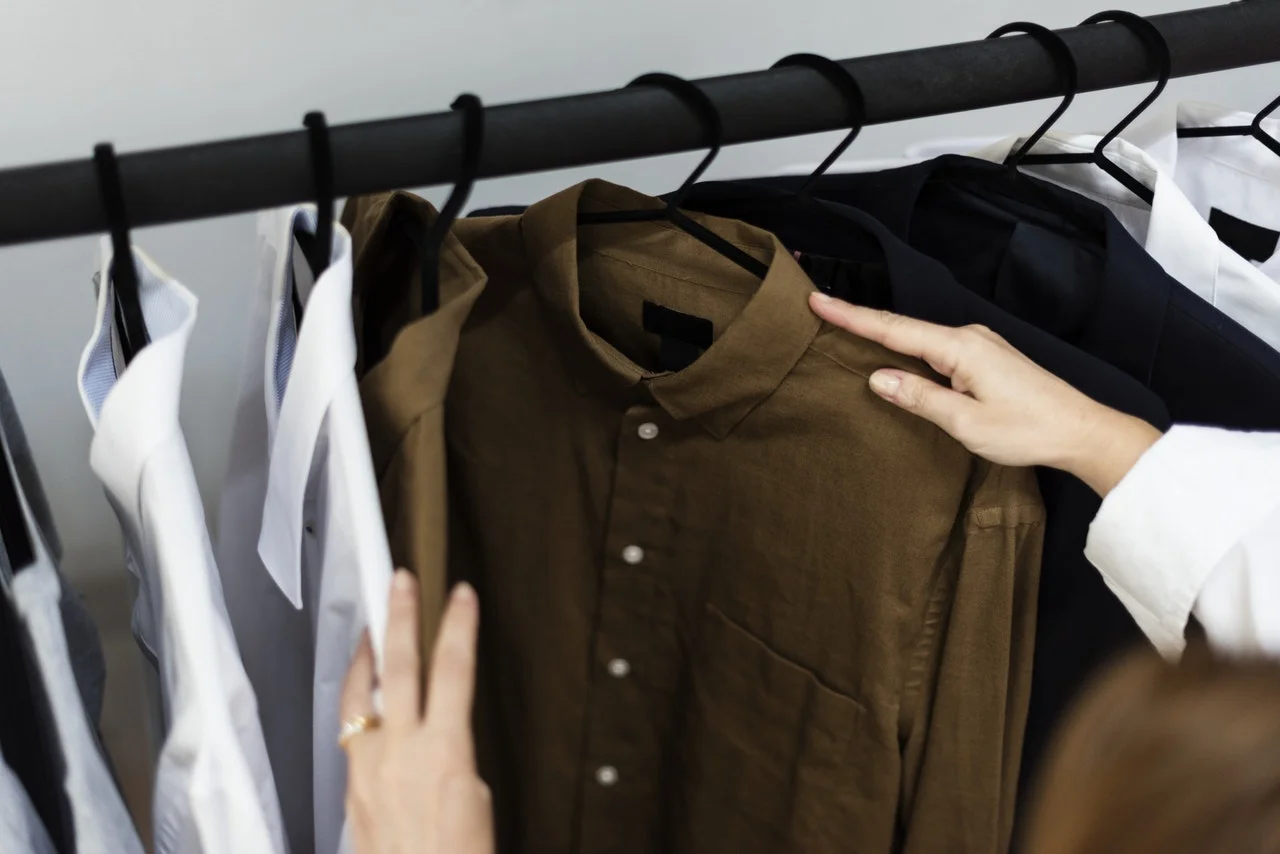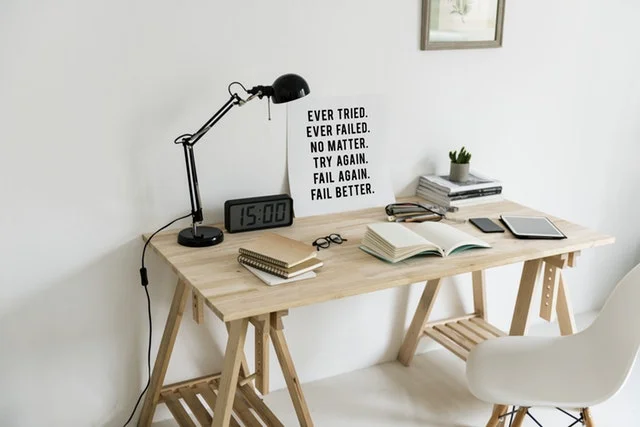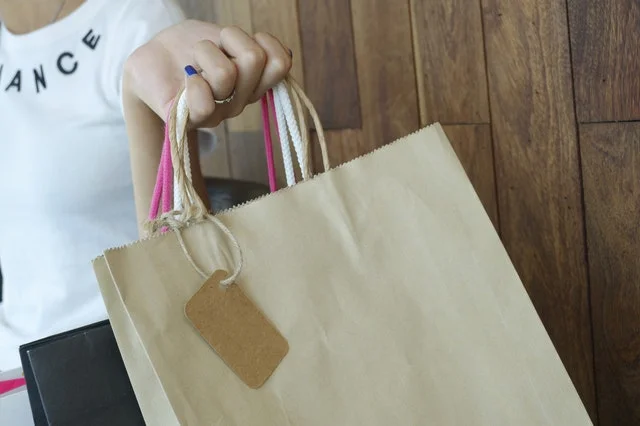5 Ways to Have More and Desire Less.
How to desire less and have more.
There are two ways to get enough: One is to accumulate more and more,
the other is to desire less. – G.K. Chesterton.
As a society, we are consumed by consumption. The idea of making things ours - bigger, better, more. Recently, I spent a weekend visiting family in Iowa. My nephew (he’s two) kept chattering on about, “No, mine. Mine. No. Mine. My, My, My…” While it’s absolutely adorable to watch your nephew string together his first few words to effectively communicate, “No, MY coat.” It’s a lot less cute to see those same ideals displayed in adults - especially when you know it’s not actually what they really want.
Why Consuming more isn’t working.
With over 5,000 advertisements a day telling us to buy, buy, buy, it’s hard not to get swept up into the idea of mine, mine, mine. And it’s not just digital ads. For some reason, I’ve found that if I use a public bathroom I’m likely to stare at an ad about how I can, “Get Fit, Fast”. I just need buy a used elliptical machine. The irony of course, is it’s the same machine someone else bought a few years ago and left sitting in their basement as a sort of modern art installation.
Too Many Ads
Advertisements find us everywhere.
If I can’t escape ad’s when I’m in the bathroom, I probably shouldn’t be surprised to get them while I’m driving. Waze, a navigation service, recently asked me if I wanted to take a 10 minute detour from my 7pm yoga class in order to go buy AAA batteries at Office Depot. (No Way-ze, har, har.)
With the addition of digital ad's tracking our every move, it's no wonder that the concepts of ownership and consumption bleed into the idea that consuming more will make us happier. Our desire to be happy, for more, means we build homes with rooms we never use, buy expensive golf gear that rarely makes it to the green, and fill our closets full of clothing we forget we even own.
Then all the stuff we’ve bought we’re afraid to get rid of, because someday we might need it - maybe. Or we're ashamed to admit that maybe it wasn't a good purchase in the first place - so we really need to make the most out of it. So does all this stuff make us happy? Not exactly. Research shows that satisfaction from the consumption of stuff is often short-lived. So we end up needing to consume more in order to sustain our happiness, which again leaves us feeling unsatisfied.
5 Ways to Desire Less (And Have More).
1. Practice Gratitude
Gratitude is at the heart to learning to desire less. When you focus on being thankful for the things you already own you’re less likely to want to consume more of or substitutes for those things. Practicing gratitude for all the little things in your life that work or go well makes us more resilient - and makes us happier. While you drink your morning coffee, put on your clothes, drive your car, walk into your home or apartment (it pays to be specific!) make a mental note to be grateful for the form and function of the stuff in your life. It should hopefully make you happy and make your life a whole lot easier.
Gratitude helps remind us how good we actually have it (and how much!) and makes us less susceptible to advertisements that tell us we need to consume more in order to be happy.
2. Learn to Appreciate Without Owning.
Practice how to relish in the experience of the moment, without tying a consumable good to that experience. For example, appreciating a beautiful day on a boat with friends, without feeling the sudden urge to go buy a boat in order to recreate that moment.
Most American families would struggle to come up with $400 in an emergency. Cultivating appreciation without the desire of ownership is not only a lot less expensive, but often comes with a lot fewer physical or financial responsibilities. You can have a lovely day by the lake with friends without the boat. Bonus: you won’t have to worry about boat maintenance, storage, insurance, lifts, life-jackets, gas, etcetera. You can even rent a boat for special occasions.
That’s not to say there isn’t a time and place to buy. It’s just learning to be aware of when you’re buying because it makes sense from a time and financial position and not associating good times or success with the ownership of that item.
3. Distract Yourself.
Often we purchase on impulse. That’s why there’s candy and magazines and little useless gadgets in the checkout-lines of most stores. We see it, we want it, we buy it. A good way to want less is to distract yourself from situations where you’re likely to shop on impulse. Instead of going to the mall as a way to hang out with friends, maybe you suggest a bike ride instead. Instead of skimming Instagram, maybe you just read a book. (Change Your Habits by Thinking Small.)
Learning to remove temptations and distract yourself with activities you enjoy - especially shared experience - helps create a pattern of behavior where you consume more moments, and less stuff.
4. Create a spending Freeze.
Limiting your resources can actually make you more creative. Instead of buying things you think you need right away, wait. Try initiating a 48 hour hold on all non-essential purchases, or try a quarterly spending freeze.
Why I Tried a Spending Freeze.
Write down what you want to purchase and why. Maybe there’s something you currently own that could be repurposed or substituted - or maybe you don’t even need the item! Talk to friends and family about what you’re looking for - and be specific. You might even be able to make what you need after a watching a few youtube videos.
At the end of your 48 hours or 3 months, if you still really need it (or want it) buy it. This strategy not only ends up saving you time and money, but it also make you more intentional about what you do buy, because you’ve had time to think through the purchase.
5. Be Generous.
We all have more to give than we realize. When we give generously - even in small ways - we change our relationship to the world and create a feeling of abundance in our own life. If you’re working on decluttering your home, you may choose to donate the items you no longer need instead of selling them. There’s lots of organizations, I like Arc’s Value Village, that can put those donations to good on a much broader scale.
(Here's the Top 5 places to donate Your Stuff.)
On top of that, research show that even small acts of generosity create, “neurological changes in your brain that are clinically proven to increase happiness and contentment.”
When you’re content and happy, you’re less likely to feel the pull consume more stuff, because you desire less.
Mindful Living Resources.
Learn more about mindful living by signing up for one of Seek United’s free online courses, attending a wellness workshop, or hiring Seek United founder, Bri Harrington, as your personal wellness coach.

















